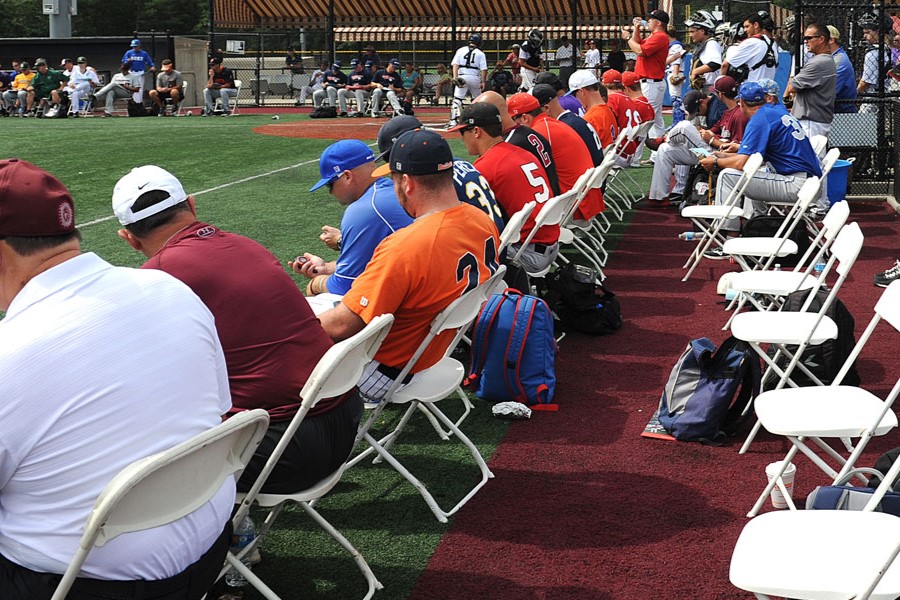
The NCAA recently changed college baseball recruiting rules to slow the recruiting process for prospective student-athletes. Under the new rules, college coaches can’t communicate with a prospect, including inbound calls, until August 1st, prior to their Junior year. Additionally, no verbal offers or commitments will be made before that time. However, communication will be permitted while attending college camps held on campuses, but coaches are not allowed to discuss recruiting or make any verbal offers until the date listed above. Let’s review what these changes mean to you!
This change is being well received by many, including college coaches, players, parents, and amateur baseball organizations. It primarily affects the highest-level D1 programs that were moving quickly in recruiting, offering commitments to players as young as 13-14 years old. Coaches made these early commitments primarily out of concern that they may lose that player to another top program. As you can imagine, it created a lot of pressure at a young age. Also, most agree that anyone before the start of their high school years is not prepared to make a college decision.
It is important to remember that these new rules do not affect the overwhelming majority of players. Most were not ready for receiving such offers early in their career. While these top players receive much attention, it is not a good example of the average college baseball recruiting process. The forced slowdown at the top of the sport is good for everyone and will hopefully bring much needed patience and development time for players and parents.
What do the new college baseball recruiting rules mean for you?
Let’s review some highlights.
-
- More time for player development – If you are a late bloomer or haven’t taken your training seriously, you now have more time to work towards your goal. If you are a talented younger player, it is essential to continue your development to maintain interest from schools and ultimately receive an offer upon the start of your Junior year. Since offers are now delayed, you are expected to have certain physical traits (size and strength) and more skills by that time.
- The pressure is off (or delayed) – For the younger guys, you don’t have to be as focused on the recruiting process. One reason for early commitments was because roster spots were filling up. Well, that’s no longer the case. As a parent, you no longer have to hear about an 8th or 9th grader committing to a college program and wondering if your son is getting left behind.
- More time for FUN and COMPETING – With more time before a potential offer, we can get back to having more fun and prioritizing learning how to compete in the team setting. This will be a great thing.
As a side note, one thing that isn’t changing is the transfer portal waiver rule that went into effect last year. It’s here to stay. If you’d like to read about that topic, please click here.

What should you do differently under the new rules?
Players and parents still need to make individual choices based on player evaluation. If you are a talented and physically ready underclassman, you might want to consider attending appropriate school camps.
However, this doesn’t apply to most younger players, you should take advantage of this lengthened time frame to develop your game, tools, and strength. Find a travel ball program that prioritizes player development over exposure and will prepare you for your future.
How will a college coach’s expectations or behavior change under the new rules?
Coaches will expect players to be further along in their development compared to the freshman or middle school prospects they offered in previous years. That starts in the weight room and making sure you are physically prepared for the recruiting process and, ultimately, the college game.
Things will move very fast for rising Juniors in August with the higher level D1 programs. Players and parents must ensure they have adequately planned their exposure leading up to that time and have a firm grasp of each program that is interested. Selecting college camps in the winter and summer before that time will be critical to allow players to interact with coaches, visit the campus, and get a better feel for the overall offering of a school and program.
Closing Comments
The recent changes in college baseball recruiting do NOT necessarily apply to all college baseball prospects, and some will need to remain patient as their process will be more suited for down the road, either during the late fall of their Junior year or the following summer. As a student-athlete recruiting process is not a race, and finding the right fit should always be the priority! You need to “run your own race”. In the meantime, focus on becoming the best version of you!
By Sam Sharf (College Sports Advisors) and Bahram Shirazi (RPP Baseball)
You live too far to train with us in-house at RPP? You can now train with us on a REMOTE basis.


